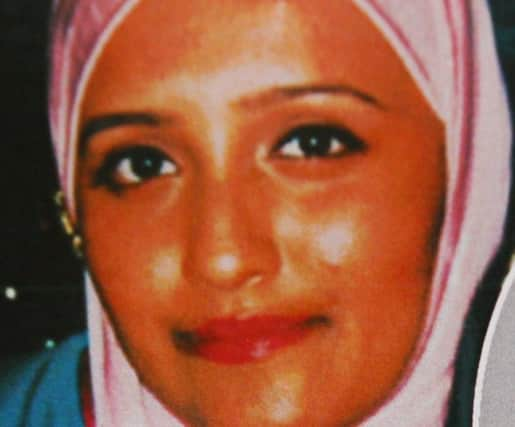Lifeline for Scots at risk of being radicalised


In a report due to be submitted to the Scottish Government next week, the Glasgow-based group Roshni is calling on ministers to back plans for an anti-extremism hotline.
The recommendation comes amid growing concern over the number of young people prepared to travel to Iraq and Syria to join up with the group calling itself Islamic State.
Advertisement
Hide AdAdvertisement
Hide AdRoshni, which works to address issues affecting Scotland’s ethnic minority groups, said the phone line would be a support and counselling service, rather than one used to raise concerns about other people.
Ali Khan, the charity’s executive chair, said: “It’s a support line we’re looking to put together, it’s not a whistleblowing line.
“One of the young people we spoke to said there was a fear about asking questions because of the answers they might get, so they go to the internet where they won’t be judged.
“There needs to be a bridge set up to allow people to say things which we may find uncomfortable, but means they won’t get arrested.”
Mr Khan said the phone line could be run by young volunteers, who would be given training in how to manage the calls.
Earlier this week the UK Government outlined guidance for schools on how to spot children at risk of being radicalised.
It said attacks on British values or intolerance to homosexuality were examples of behaviour which could raise concerns.
The Department of Education, which has responsibility for schools in England and Wales, already has a telephone helpline and e-mail address which allows members of the public to raise concerns about radicalisation, but there is nothing similar north of the Border.
Advertisement
Hide AdAdvertisement
Hide AdHundreds of young people are believed to have left the UK to join jihadists in the Middle East.
They include former Glasgow schoolgirl Aqsa Mahmood, whose family were this week forced to issue a condemnation after their daughter wrote a blog in praise of the attack on British tourists in Tunisia.
Mr Khan said his charity hoped to set up groups for young people, which would give them a “modicum of freedom” to express their views.
But he said the idea ran the risk of going against the government’s radicalisation strategy, which he criticised for being too much of a “top-down” approach.
Labour MSP Graeme Pearson, a former police officer, said it was up to government, not charities, to come up with a strategy.
He said: “It seems to me the time is right for the government to call together a strategy group to put a well-thought-out plan in place, rather than individual organisations coming up with one-off ideas.
“Up to now, it has been a lot of well-meaning organisations cherry-picking ideas and presumably seeking funding without an overall plan that says how will this all fit together.”
He added: “What we’re dealing with here is something that is going to last decades – this isn’t a short-term fix we’re looking for. Therefore, it would be right for the Scottish Government, along with Police Scotland and the security service, to begin to sit down in a Scottish context and decide how to put a plan together.”
Advertisement
Hide AdAdvertisement
Hide AdA Scottish Government spokeswoman said there were already measures in place to tackle radicalisation.
She said: “Scotland has robust measures in place to help safeguard children and young people from any risks from extremism, not least work by the Preventing Violent Extremism unit and Police Scotland, working with Education Scotland and local authorities, as part of the UK counter-terrorism strategy.
“This includes promoting awareness of vulnerabilities and risks and in recent years has reached thousands of pupils and teachers through hundreds of events, including class discussions, presentations and teacher workshops in schools, as part of Scotland’s wider multi-agency response to the threat posed by extremism.
“Protecting our children and young people is our priority and we will always review our own work and what we can learn from the successes of others.”